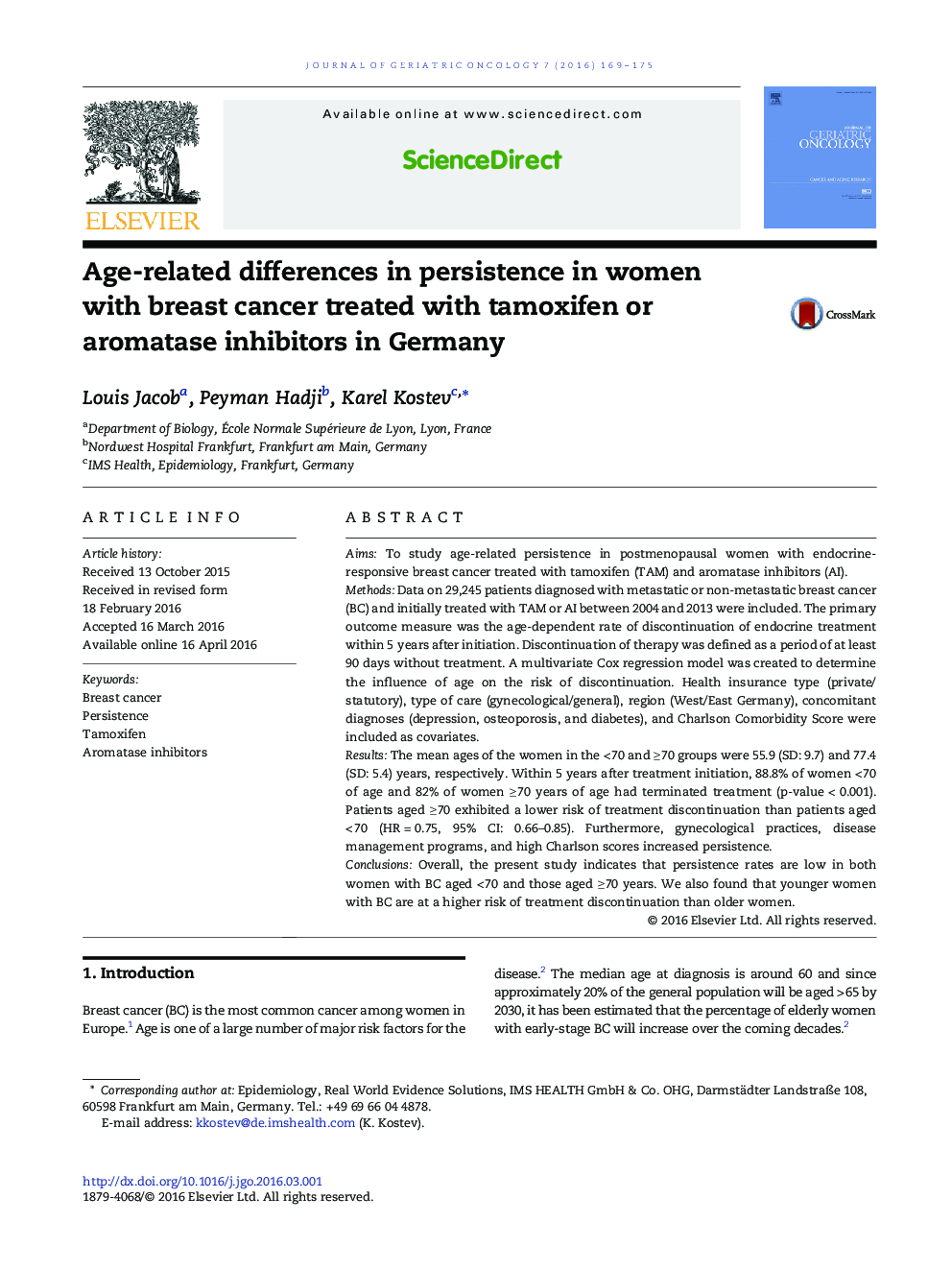| Article ID | Journal | Published Year | Pages | File Type |
|---|---|---|---|---|
| 1912253 | Journal of Geriatric Oncology | 2016 | 7 Pages |
AimsTo study age-related persistence in postmenopausal women with endocrine-responsive breast cancer treated with tamoxifen (TAM) and aromatase inhibitors (AI).MethodsData on 29,245 patients diagnosed with metastatic or non-metastatic breast cancer (BC) and initially treated with TAM or AI between 2004 and 2013 were included. The primary outcome measure was the age-dependent rate of discontinuation of endocrine treatment within 5 years after initiation. Discontinuation of therapy was defined as a period of at least 90 days without treatment. A multivariate Cox regression model was created to determine the influence of age on the risk of discontinuation. Health insurance type (private/statutory), type of care (gynecological/general), region (West/East Germany), concomitant diagnoses (depression, osteoporosis, and diabetes), and Charlson Comorbidity Score were included as covariates.ResultsThe mean ages of the women in the < 70 and ≥ 70 groups were 55.9 (SD: 9.7) and 77.4 (SD: 5.4) years, respectively. Within 5 years after treatment initiation, 88.8% of women < 70 of age and 82% of women ≥ 70 years of age had terminated treatment (p-value < 0.001). Patients aged ≥ 70 exhibited a lower risk of treatment discontinuation than patients aged < 70 (HR = 0.75, 95% CI: 0.66–0.85). Furthermore, gynecological practices, disease management programs, and high Charlson scores increased persistence.ConclusionsOverall, the present study indicates that persistence rates are low in both women with BC aged < 70 and those aged ≥ 70 years. We also found that younger women with BC are at a higher risk of treatment discontinuation than older women.
